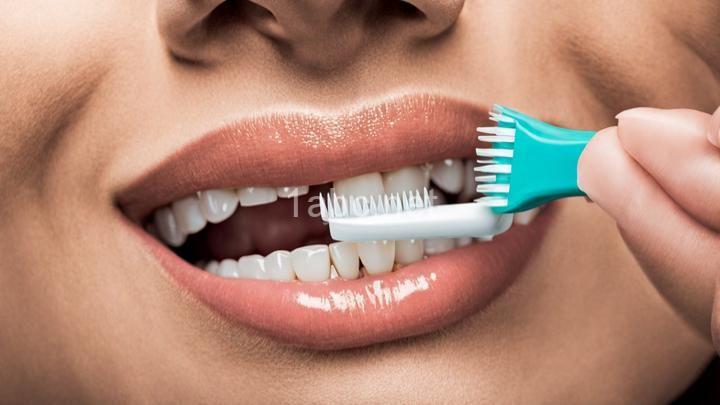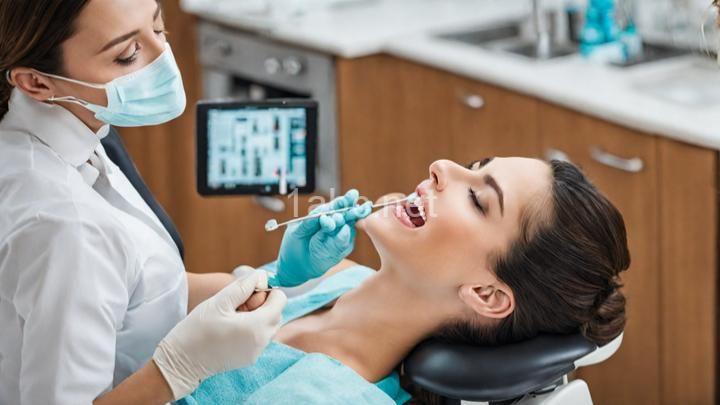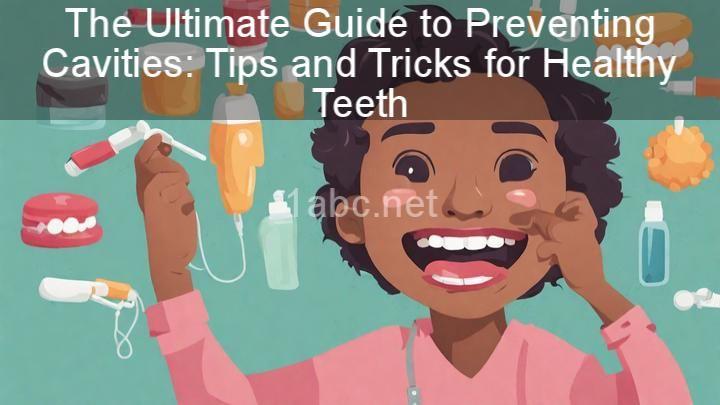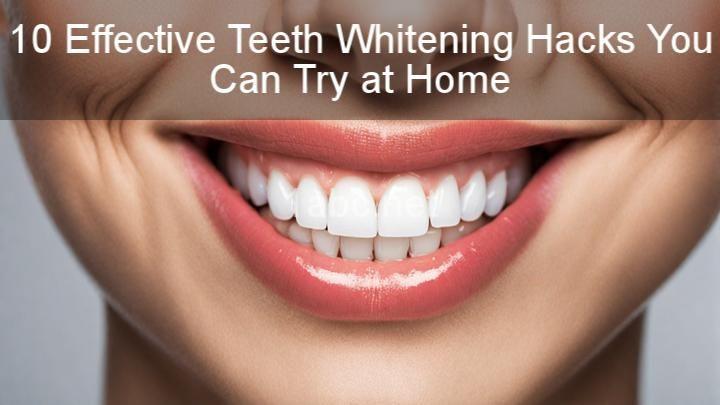The Hidden Causes of Bad Breath and How to Combat Them

Introduction:
Welcome, dear readers, to yet another exciting blog post where we dive deep into the world of oral hygiene and explore the mysteries behind bad breath. Ah yes, bad breath, the silent but deadly enemy that can ruin everything from first dates to job interviews. But fear not, for we are here to uncover the hidden causes of bad breath and provide you with practical tips to combat this odorous villain.
I. Poor Oral Hygiene:
Let's start with the basics, shall we? Poor oral hygiene is one of the primary culprits behind bad breath. When we neglect to brush and floss regularly, bacteria build up in our mouths, leading to that not-so-pleasant odor. It's like a party for the bacteria, but not one that we want to attend.
To combat this menace, it is essential to establish a regular oral hygiene routine. Brush your teeth at least twice a day, making sure to reach all those nooks and crannies. Don't forget to floss to remove any food particles stuck between your teeth. And oh, let's not ignore the tongue! Give it a gentle scrub with your toothbrush or a tongue scraper to remove any bacteria lurking there.
II. Dry Mouth:
Ah, the desert of the mouth, also known as dry mouth. This condition, where there is a lack of saliva production, can contribute to bad breath. You see, saliva plays a vital role in keeping our mouths clean by washing away bacteria and food particles. When saliva production decreases, bacteria have a field day, resulting in that unpleasant odor.
Dry mouth can have several causes, such as certain medications or medical conditions. If you suspect you have dry mouth, it's essential to stay hydrated and sip water throughout the day. You can also try using saliva substitutes to keep your mouth moist. Chew sugar-free gum or suck on sugar-free candies to stimulate saliva production. Just make sure they don't replace proper oral hygiene practices!
III. Food Choices:
We all know that certain foods can leave a lasting impact on our breath. Garlic, onions, and spices, oh my! These flavorful delights may be a taste sensation, but their aftermath can be a bit, well, pungent. The compounds in these foods can be absorbed into the bloodstream and carried to the lungs, resulting in breath that could knock out a rhinoceros.
To minimize the impact of these odoriferous foods, there are a few tricks you can employ. First, try to avoid them altogether if you know you have an important meeting or event. If that's not possible, you can try chewing on parsley or mint leaves after eating. These natural breath fresheners can help neutralize the odors. And of course, don't forget to brush and floss after meals to remove any remnants of these aromatic foods.
IV. Tobacco Use:
Ah, the smoking gun, or should I say, the smoking breath? Smoking or chewing tobacco not only has detrimental effects on our overall health but also wreaks havoc on our breath. Tobacco products contain chemicals that not only leave a lingering stench but also harm our oral health.
Quitting tobacco is easier said than done, but it is necessary for both your breath and your overall well-being. Seek support from friends, family, or even support groups to help you on your journey to a tobacco-free life. And while you're at it, don't forget to improve your oral hygiene practices to combat the effects that tobacco may have already had on your breath.
V. Dental Issues:
Dental problems can be a real pain in the mouth, both literally and figuratively. Tooth decay, gum disease, and oral infections can all contribute to bad breath. When these issues go untreated, they provide a cozy environment for bacteria to thrive, resulting in breath that could make a skunk blush.
Regular dental check-ups are crucial to detect any dental issues early on. Your dentist can identify and treat problems such as tooth decay or gum disease, keeping your breath fresh and your smile radiant. So don't skip those appointments, folks!
VI. Systemic Conditions:
Sometimes, bad breath can be a sign of an underlying medical condition. Conditions like diabetes or liver disease may contribute to chronic bad breath. If you've tried all the tips and tricks we've mentioned so far and still find yourself battling the dreaded dragon breath, it's time to consult your healthcare provider.
They can help determine if there are any underlying systemic conditions that may be causing your bad breath. Getting to the root of the problem (pun intended) is essential for finding an effective solution.
Conclusion:
And there you have it, my fresh-breathed friends! We've explored the hidden causes of bad breath and armed you with practical tips to combat this olfactory menace. Remember, prevention is key when it comes to bad breath, so make sure to establish a regular oral hygiene routine, stay hydrated, watch your food choices, and quit tobacco if you're a user.
By following these guidelines and adopting proper oral care practices, you can send bad breath packing and enjoy fresh, confident breath every day. So go forth and conquer those meetings, dates, and social gatherings with the knowledge that your breath is as fresh as a mountain breeze. Happy brushing!
FREQUENTLY ASKED QUESTIONS
What are the main causes of bad breath?
Bad breath, also known as halitosis, can be caused by various factors. The main causes of bad breath include poor oral hygiene, certain foods and drinks, tobacco use, dry mouth, underlying medical conditions, and certain medications.One of the primary culprits of bad breath is poor oral hygiene. If you don't brush and floss your teeth regularly, food particles can remain in your mouth, promoting bacterial growth and leading to unpleasant odors.
Certain foods and drinks, such as onions, garlic, coffee, and alcohol, can also contribute to bad breath. These substances contain volatile compounds that can be carried into your lungs and exhaled, causing an unpleasant odor.
Tobacco use is another significant cause of bad breath. Smoking or chewing tobacco can not only leave a distinct smell on your breath but also lead to gum disease, which can further worsen bad breath.
Dry mouth, also known as xerostomia, can be caused by factors like dehydration, certain medications, and mouth breathing. Saliva plays a crucial role in rinsing away bacteria and food particles, so a lack of saliva can contribute to bad breath.
Underlying medical conditions, such as respiratory infections, sinusitis, gastrointestinal issues, and liver or kidney problems, can also result in bad breath. These conditions may produce specific odors that are noticeable on the breath.
Lastly, certain medications, including some antidepressants, antihistamines, and diuretics, can cause dry mouth, leading to bad breath as a side effect.
It's important to note that if you experience chronic bad breath despite maintaining good oral hygiene, it's recommended to consult with a dentist or healthcare professional to rule out any underlying medical conditions.
By addressing these causes and maintaining a consistent oral hygiene routine, you can significantly improve your breath freshness and overall oral health.
How can I determine if I have bad breath?
To determine if you have bad breath, there are a few simple methods you can try. One way is to lick the inside of your wrist and let it dry for a few seconds. Then, smell your wrist. If there is an unpleasant odor, chances are you have bad breath. Another method is to floss your back teeth and then smell the floss. If it has a foul smell, it could be a sign of bad breath. You can also ask a trusted friend or family member for their honest opinion. They may be able to detect any unpleasant odors that you may not be aware of. Additionally, if you frequently experience a bad taste in your mouth or notice that people tend to step back or avoid close contact when you speak, it could be an indication of bad breath. Regular dental check-ups can also help identify and address any underlying dental issues that could be causing bad breath.
Can certain foods and drinks contribute to bad breath?
Yes, certain foods and drinks can contribute to bad breath. Strong-smelling foods such as garlic, onions, and certain spices can leave an unpleasant odor in your mouth even after you've finished eating. Additionally, drinking alcohol and coffee can also contribute to bad breath due to their drying effect on the mouth. These beverages can decrease saliva production, leading to an increase in odor-causing bacteria. It's important to note that while these foods and drinks may temporarily cause bad breath, practicing good oral hygiene, such as brushing your teeth and using mouthwash, can help minimize its effects.
Are there any medical conditions that can cause bad breath?
Yes, there are several medical conditions that can cause bad breath. One common condition is dry mouth, which occurs when there is a decrease in saliva production. Saliva helps to cleanse the mouth and remove odor-causing bacteria. Other conditions include sinus infections, respiratory tract infections, and gastrointestinal issues such as acid reflux. Additionally, certain medications can also contribute to bad breath as a side effect. If you are experiencing persistent bad breath, it is advisable to consult with a healthcare professional to determine the underlying cause and appropriate treatment.



